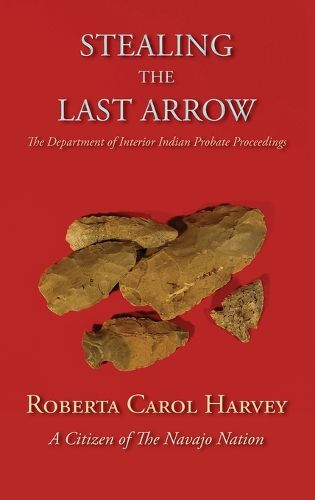Readings Newsletter
Become a Readings Member to make your shopping experience even easier.
Sign in or sign up for free!
You’re not far away from qualifying for FREE standard shipping within Australia
You’ve qualified for FREE standard shipping within Australia
The cart is loading…






This title is printed to order. This book may have been self-published. If so, we cannot guarantee the quality of the content. In the main most books will have gone through the editing process however some may not. We therefore suggest that you be aware of this before ordering this book. If in doubt check either the author or publisher’s details as we are unable to accept any returns unless they are faulty. Please contact us if you have any questions.
The American Indian Probate Act was enacted in 2004 and became effective in 2006. The Act applies to all individually owned trust lands, unless a tribe has its own probate code. State laws no longer apply. Its purposes include preserving the trust status of Indian lands by restricting non-Indian inheritance, reducing fractionation by earmarking federal funds for consolidation, and authorizing Indian co-owner and tribal purchase and sale of ownership interests. The Bureau of Indian Affairs estimated that heading into fiscal year 2024, it had a probate case backlog of more than 32,000 cases. Its ability to prepare cases for probate is limited due to understaffing and underfunding. In 2022-2023, the Interior Board of Indian Appeals docketed 31 Indian probate cases and reached the merits only four times. It dismissed most of those cases for procedural errors, for problems with service and missed deadlines, or for failure to prosecute. To families struggling to put bread on the table, the cost of legal counsel is simply out of reach. The digital divide in Indian Country only makes communication more difficult, if not, impossible, for the geographically isolated, disabled and elderly who may lack transportation in rural areas, telephones or postal service. This book is to sound an alarm.
$9.00 standard shipping within Australia
FREE standard shipping within Australia for orders over $100.00
Express & International shipping calculated at checkout
This title is printed to order. This book may have been self-published. If so, we cannot guarantee the quality of the content. In the main most books will have gone through the editing process however some may not. We therefore suggest that you be aware of this before ordering this book. If in doubt check either the author or publisher’s details as we are unable to accept any returns unless they are faulty. Please contact us if you have any questions.
The American Indian Probate Act was enacted in 2004 and became effective in 2006. The Act applies to all individually owned trust lands, unless a tribe has its own probate code. State laws no longer apply. Its purposes include preserving the trust status of Indian lands by restricting non-Indian inheritance, reducing fractionation by earmarking federal funds for consolidation, and authorizing Indian co-owner and tribal purchase and sale of ownership interests. The Bureau of Indian Affairs estimated that heading into fiscal year 2024, it had a probate case backlog of more than 32,000 cases. Its ability to prepare cases for probate is limited due to understaffing and underfunding. In 2022-2023, the Interior Board of Indian Appeals docketed 31 Indian probate cases and reached the merits only four times. It dismissed most of those cases for procedural errors, for problems with service and missed deadlines, or for failure to prosecute. To families struggling to put bread on the table, the cost of legal counsel is simply out of reach. The digital divide in Indian Country only makes communication more difficult, if not, impossible, for the geographically isolated, disabled and elderly who may lack transportation in rural areas, telephones or postal service. This book is to sound an alarm.